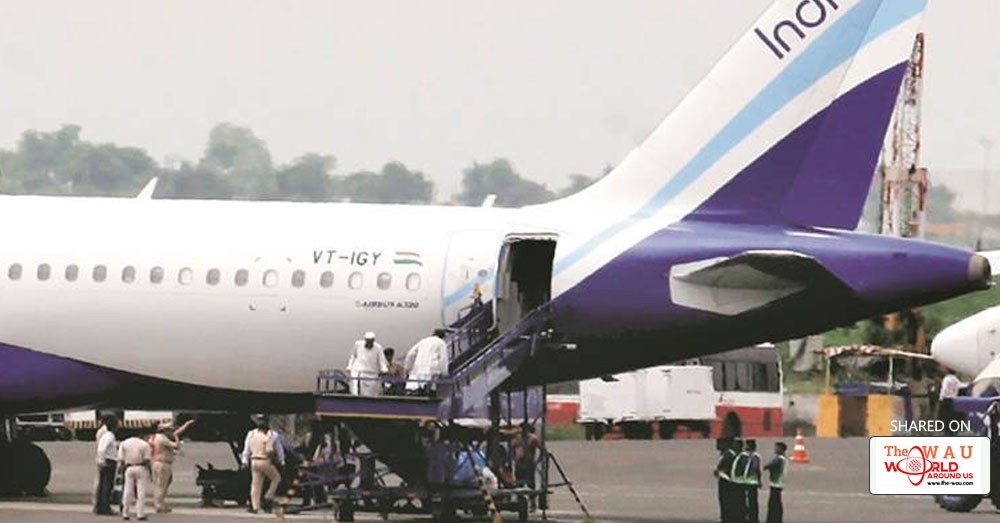On March 10, 2016, barely three months after Qatar Airways refused to accept deliveries of Airbus A320neo aircraft citing performance issues with their Pratt & Whitney (PW) engine, India’s largest airline and Airbus’s biggest “neo customer” IndiGo took delivery of its first A320neo with the same engine option. Since then, IndiGo has received a fleet of 22 A320neo aircraft from Airbus which has so far delivered around 60 Pratt & Whitney-powered A320neo aircraft to 12 operators.
IndiGo’s fleet includes two that were originally sent to Qatar Airways but were later repainted and delivered to IndiGo, as confirmed by the Airbus manufacturer serial number. It’s not clear, though, if these two aircraft delivered to IndiGo were equipped with the same engines that were sent to Qatar Airways — IndiGo did not respond to a question on the issue. Subsequently, due to engine snags, as many as nine aircraft have been grounded by IndiGo on certain days.
IndiGo is not the only airline which has issues with PW engines. GoAir, which inducted its first aircraft in June 2016, has also grounded two of its five A320neo aircraft.
Asked by The Indian Express if there was a potential safety concern for passengers due to problems in the Pratt & Whitney engines, IndiGo’s President & Wholetime Director Aditya Ghosh referred to a company’s statement issued on August 20 which said: “While not a safety issue, we report all the relevant data on these engines to the DGCA and they are also continuously monitoring these issues as part of their oversight authority and responsibility.”
Pratt & Whitney claims that the “challenging environment of India” (heat and humidity) is one of the primary causes of “early distress” in the engine part.
Two incidents in the last six months have sent alarm bells ringing. In February, one of GoAir’s aircraft suffered a mid-air engine fire. While the Directorate General of Civil Aviation (DGCA) suspended the licence of an aircraft maintenance engineer at GoAir for alleged lapses, the airline denied any negligence and said it had followed procedures after a warning, as prescribed by the manufacturer. Earlier this month, an IndiGo A320neo en route to Kolkata from Ahmedabad experienced a technical snag in one of the two engines, prompting the flight crew to carry out a precautionary landing in Nagpur.
Since March, both IndiGo and GoAir have asked their pilots flying the A320neo aircraft not to climb over 30,000 feet to reduce strain on the engines. Flying at higher altitudes strains the engine given lower air density — at lower altitudes, however, fuel consumption increases because air density increases.
In an analyst call held on July 31, Ghosh had said: “To make up for this shortfall (due to the grounding of aircraft), we have had to go to the aircraft leasing market and enter into short- term leases of used A320s. Some of them with GE engines and some with IAE engines. These short-term leases have an average duration of three years. However, they come at a higher operating cost for us due to higher maintenance costs because they are older aircraft and higher fuel burn relative to the neos.”
The Indian Express sent a detailed email query sent to IndiGo on the engines, on why it had accepted two aircraft rejected by Qatar and the effect of PW engines on its operations. But the IndiGo spokesperson said; “We decline to participate in this story”. GoAir, too, declined to comment. Qatar Airways confirmed receipt of the query but did not comment.
The DGCA did not respond to a query sent by e-mail. However, on August 3, the DGCA held a meeting with Pratt and Whitney, Airbus, IndiGo and GoAir to discuss the progress made by the engine maker to fix the issue. On August 24, a senior DGCA official, on condition of anonymity, said that Pratt & Whitney has assured the regulator of prioritising Indian carriers for sending new engines. “A large number of aircraft are grounded due to want of engines. Engine delivery will be expedited from the last week of September,” the official said.
“DGCA should conduct proper enquiry. Why have they not grounded the aircraft yet? It is a very unsafe situation… There have been instances in the US in the past where entire fleet of an aircraft was grounded for seven days because of a small thing until the investigation was completed,” said Captain SS Panesar, ex-Director, Flight Safety, Indian Airlines.
Even as IndiGo continues to fly the rest of the A320neo aircraft in its fleet fitted with PW engines, Ghosh said during the July 31 call that “it may be another year or so before the design changes are implemented by Pratt & Whitney which should allow these engines to have the on-wing flight hours that we expect from them”.
Asked about its defective engines, a Pratt & Whitney spokesman said: “Since March, new engines and overhauled engines have incorporated improvements that have enhanced the engine’s durability. We have increased spare engine deliveries as well as overhauled engine returns with this improved design which should help to stabilise the current fleet.”
“The Pratt & Whitney engine was certified for the A320neo after a complete and successful flight test campaign which comprised 1,070 flight hours in some 350 flights. The flight test campaign included testing in cold weather, hot weather conditions, high altitude, and water ingestion testing. We have a strong commitment from Pratt & Whitney to fix the maturity issues affecting the engine and provide all possible support to our airline customers,” Airbus India’s Head of Communications Sunny Guglani said in an e-mail response to queries sent by The Indian Express.
Besides IndiGo and GoAir, flag carrier Air India and Tata-Singapore Airlines joint venture Vistara also fly the A320neo aircraft, but with a different engine option that has been devoid of any such problems so far. Between IndiGo and GoAir alone, over 500 A320neo aircraft are yet to be inducted into their fleets. According to summary of orders and deliveries available on Airbus website, IndiGo received 22 A320neo airliners as on July 31 out of a total 410 that it ordered, while GoAir has received five of its total order of 144.
Share This Post















